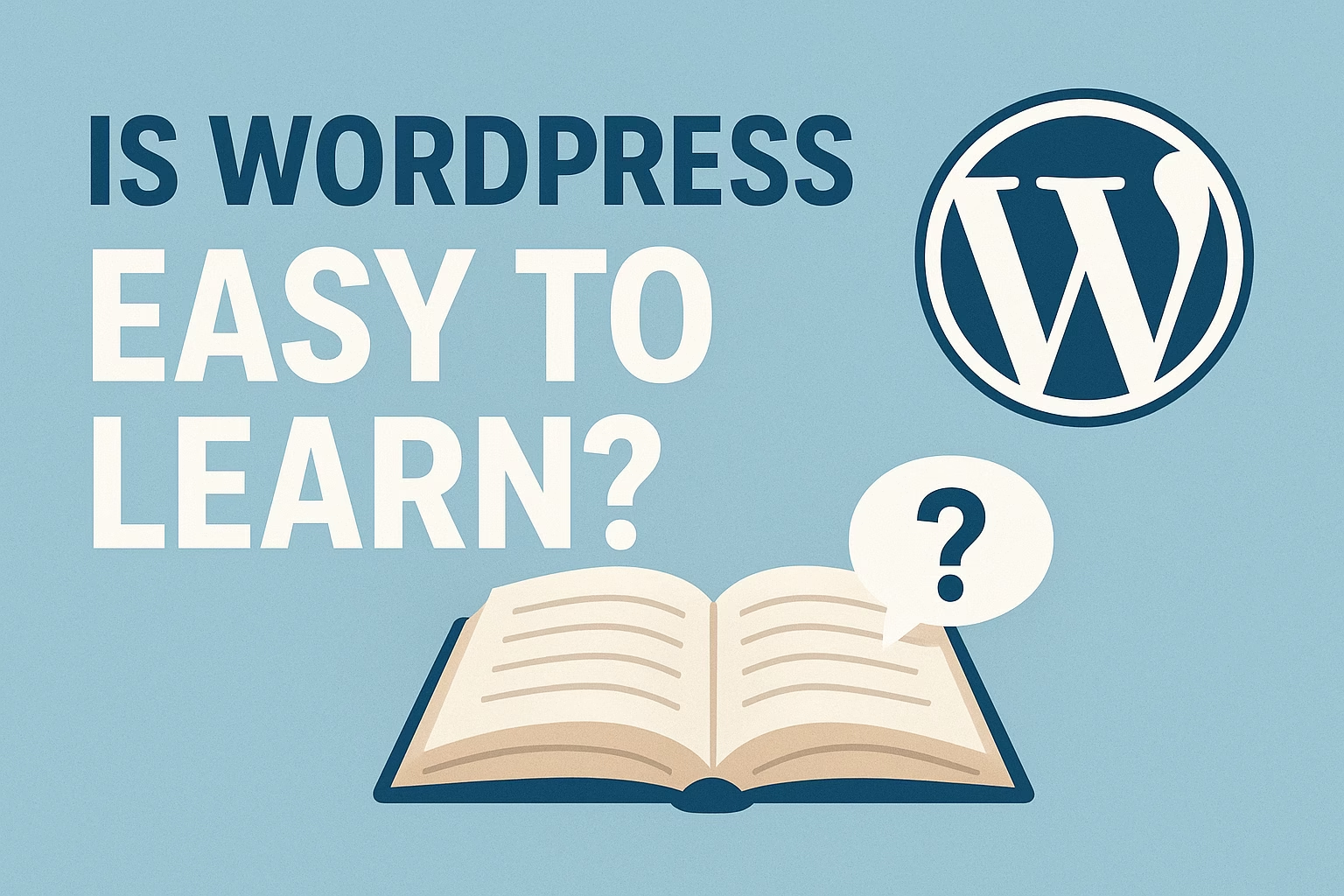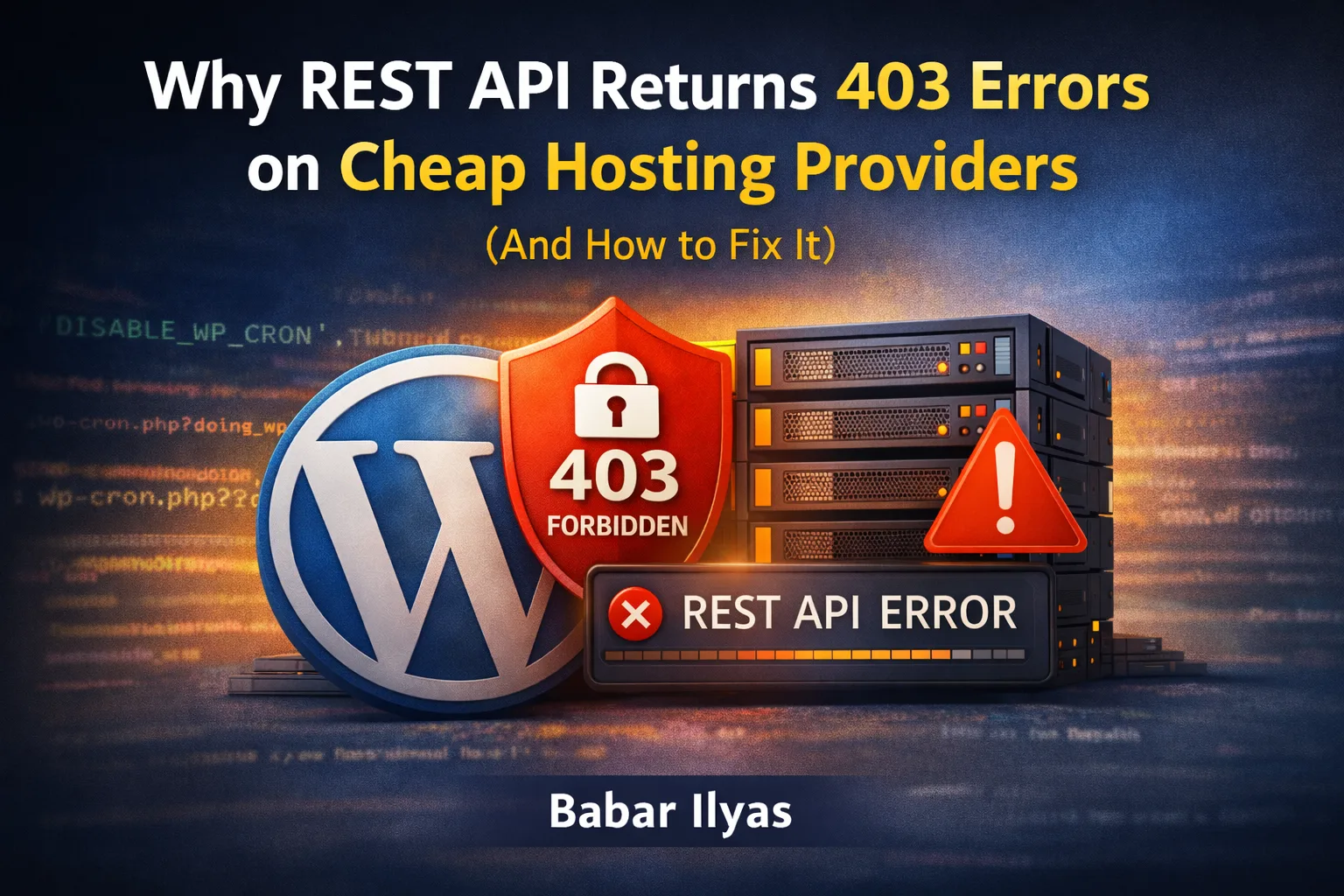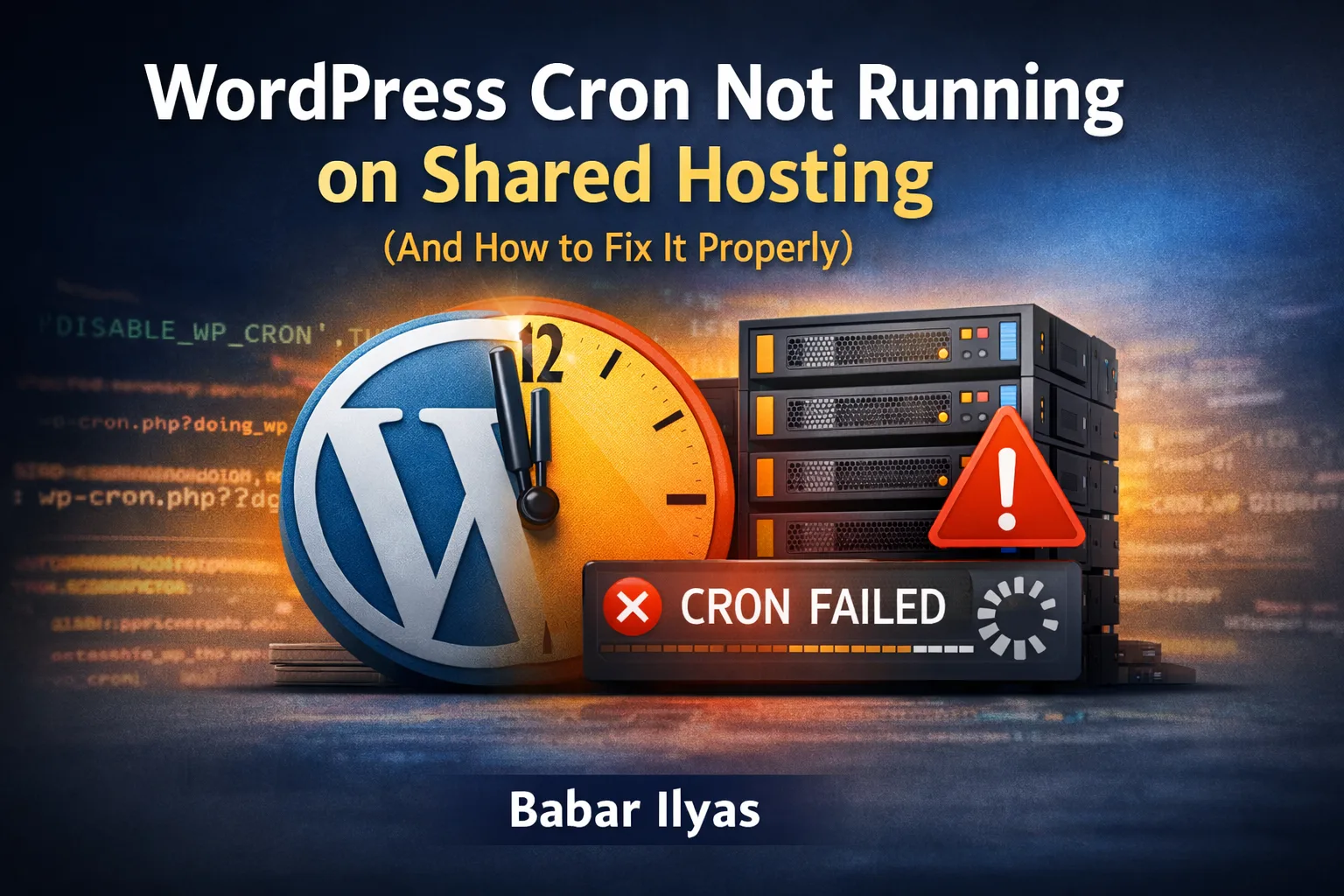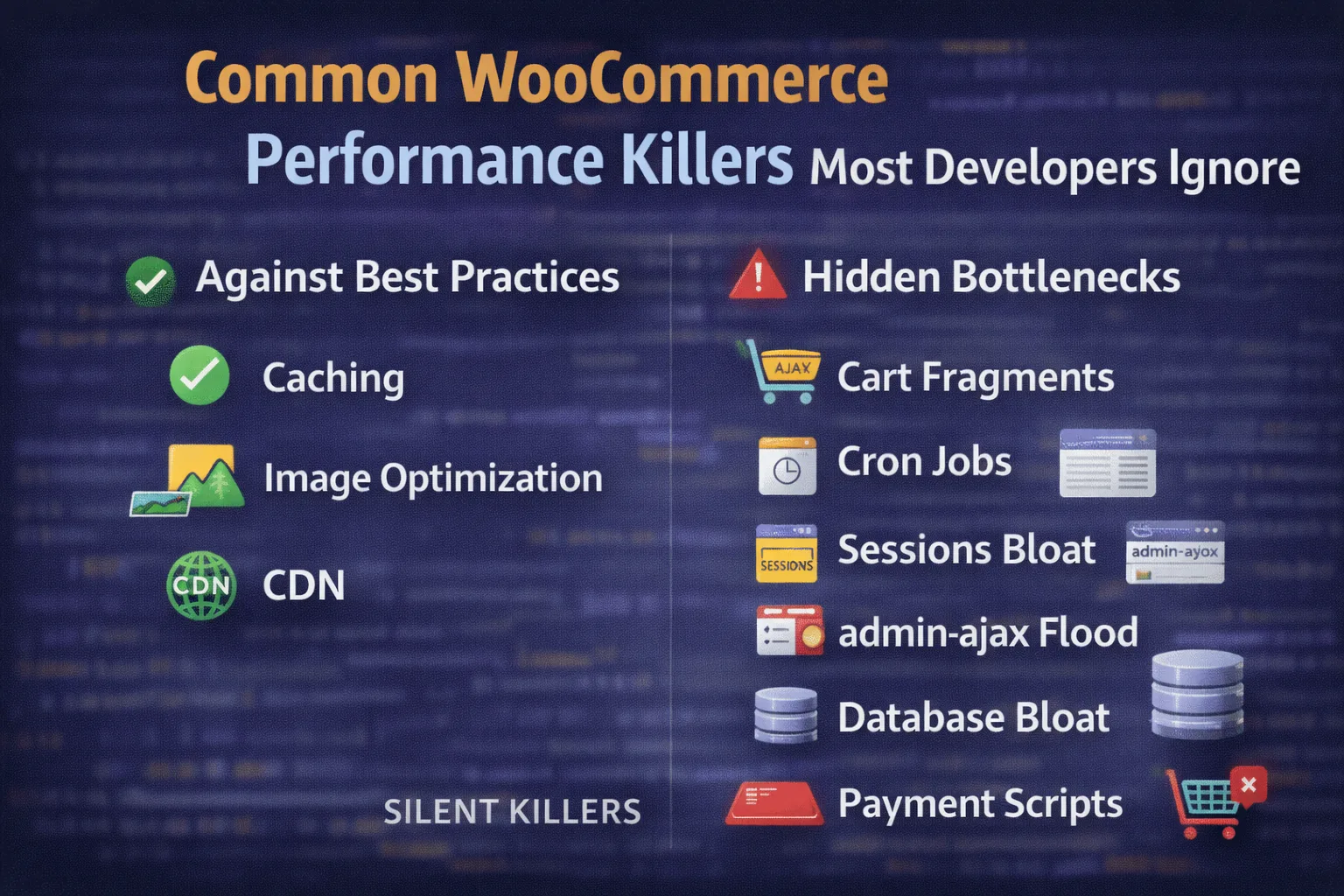Yes, WordPress is designed to be beginner-friendly. With its simple dashboard, themes, and plugins, even users with no technical background can build a website.
WordPress powers over 40% of websites worldwide, making it one of the most popular platforms for beginners and professionals alike. But if you’re new, you might wonder—is WordPress easy to learn? The short answer is yes! With its simple interface, customizable themes, and powerful plugins, WordPress is designed to be beginner-friendly while offering advanced features for developers. In this guide, we’ll explore why WordPress is easy to learn, what challenges you may face, and how to get started smoothly.
What Makes WordPress Beginner-Friendly?
WordPress is often the first choice for beginners who want to build a website without deep technical knowledge. Its user-friendly interface, vast theme and plugin library, and supportive global community make it one of the easiest platforms to start with. Whether you’re creating a blog, business site, or online store, WordPress provides tools that simplify the process.
1. Simple and Intuitive Dashboard
WordPress comes with a clean, organized dashboard that makes it easy to navigate. You can manage posts, pages, media, and settings with just a few clicks, even if you’ve never built a website before.
👉 Learn more: WordPress.org – Getting Started
2. Huge Library of Themes and Plugins
With thousands of free and premium themes, you can design your website without writing code. Plugins extend functionality, allowing you to add features like contact forms, SEO tools, or eCommerce solutions.
👉 Explore: WordPress Theme Directory | WordPress Plugin Directory
3. Drag-and-Drop Page Builders
Popular tools like Elementor, Beaver Builder, and Divi make customizing websites as easy as dragging and dropping elements into place. This removes the need for complex coding.
👉 Check: Elementor Official Site
4. Extensive Learning Resources
From official documentation to YouTube tutorials, blogs, and online courses, there are endless resources to help beginners learn WordPress step by step. The supportive community ensures you never feel stuck.
👉 Visit: WPBeginner Tutorials
5. Flexible and Scalable for Any Website
WordPress can grow with your needs. Start with a simple blog, and later expand to an online store, membership site, or portfolio—all without switching platforms.
How Long Does It Take to Learn WordPress?
The time it takes to learn WordPress depends on your goals, background, and how much time you dedicate. For most beginners, it only takes a few hours to understand the basics, like creating posts, pages, and managing plugins. However, mastering advanced customization—such as theme development, SEO optimization, and custom coding—may take weeks or even months. The good news is, WordPress offers a gradual learning curve, so you can start building right away while improving as you go.
1. Learning the Basics (1–2 Days)
New users can quickly grasp the WordPress dashboard, create posts, and upload media within a day or two. It’s designed to be intuitive, even for complete beginners.
👉 Helpful resource: WordPress.com – Learn WordPress
2. Mastering Themes and Customization (1–2 Weeks)
Once you’re comfortable, you can start exploring themes, widgets, and menus. Learning how to tweak designs with page builders or customizer settings usually takes a week or two.
👉 Explore: Elementor Learning Center
3. Understanding Plugins and Site Functionality (2–4 Weeks)
Plugins unlock advanced features like SEO tools, eCommerce, and contact forms. Testing and configuring plugins takes a bit longer but adds tremendous value to your site.
👉 Recommended: Yoast SEO Guide
4. Diving into Advanced Features (1–3 Months)
For those who want more control, learning custom post types, hooks, and shortcodes may take a couple of months. These skills let you go beyond drag-and-drop customization.
👉 Reference: WordPress Codex – Developer Resources
5. Ongoing Learning and Growth
WordPress is constantly evolving, so there’s always something new to learn—from Gutenberg updates to advanced plugin ecosystems. The key is consistent practice and keeping up with the community.
👉 Stay updated: WordPress News
Common Challenges Beginners Face
While WordPress is beginner-friendly, new users often encounter certain hurdles when getting started. These challenges usually involve technical setup, understanding plugins, managing security, and keeping the site optimized. The good news is that most of these issues can be easily solved with the right guidance, tutorials, and community support.
1. Choosing the Right Hosting and Setup
One of the first difficulties beginners face is selecting reliable hosting and properly installing WordPress. Many users get overwhelmed by different hosting plans, SSL certificates, and setup processes.
2. Understanding Themes and Customization
With thousands of themes available, beginners often struggle to pick the right one and customize it to match their vision. Sometimes, theme settings can feel confusing without prior experience.
3. Managing Plugins Without Overloading
Plugins are powerful, but installing too many can slow down your website or cause compatibility issues. Beginners often don’t know which plugins are essential and which ones to avoid.
4. Ensuring Website Security
WordPress is secure, but weak passwords, outdated plugins, and poor hosting can make websites vulnerable. New users often underestimate the importance of regular updates and backups.
5. Improving Website Speed and Performance
A slow site can frustrate visitors. Beginners may struggle with caching, image optimization, and reducing unnecessary scripts, which are key to keeping a site fast and user-friendly.
Tips to Learn WordPress Faster
Learning WordPress doesn’t have to feel overwhelming. With the right approach, beginners can quickly build a functional website and gradually explore advanced features. The key is to follow structured learning methods, use available resources, and practice consistently. These tips will help you speed up the learning curve and gain confidence in managing your site.
1. Start with the Basics Before Going Advanced
Focus on learning simple tasks like creating posts, adding images, and installing plugins. Once you’re comfortable, gradually explore more advanced features such as custom themes or page builders.
2. Use Online Tutorials and Learning Platforms
There are plenty of free and paid resources like WPBeginner, Learn.WordPress.org, and YouTube tutorials that provide step-by-step guidance. Structured courses can accelerate your learning.
3. Practice by Building a Real Website
Instead of just reading about WordPress, set up a test website. Experimenting hands-on will help you retain knowledge and troubleshoot real issues faster.
4. Join WordPress Communities and Forums
Participating in groups like the WordPress Support Forum, Facebook groups, or local meetups allows you to ask questions, share experiences, and learn from experts.
5. Leverage Page Builders and Starter Templates
Using tools like Elementor, Beaver Builder, or starter themes can simplify the design process. These tools help beginners create professional-looking websites with minimal effort.
Do You Need Coding Skills to Use WordPress?
One of the biggest reasons WordPress is so popular is that it allows anyone to build a website without needing to know how to code. Beginners can rely on themes, plugins, and page builders to create fully functional websites. However, having some coding knowledge can unlock more customization options and give you greater control over your site. Let’s break it down.
1. Building Without Coding Is Possible
WordPress is designed so that beginners can manage content, install themes, and use plugins without writing a single line of code. Most tasks are point-and-click.
2. Themes and Page Builders Do the Heavy Lifting
Tools like Elementor, Divi, or Block Editor (Gutenberg) allow users to design pages visually with drag-and-drop functionality, eliminating the need for coding.
3. When Basic HTML and CSS Can Help
While not mandatory, knowing a little HTML and CSS can help you tweak layouts, adjust colors, or fix small design issues quickly.
4. PHP and JavaScript for Advanced Users
If you want to create custom themes, develop plugins, or build highly dynamic websites, knowledge of PHP and JavaScript becomes very useful.
5. No-Code vs. Low-Code Approach
Most beginners thrive using the no-code approach, but those who invest time in learning low-code customization gain more flexibility, scalability, and independence in managing their sites.
Final Verdict: Is WordPress Really Easy to Learn?
Yes—WordPress is one of the easiest website platforms for beginners to learn. With its intuitive dashboard, thousands of themes and plugins, and strong community support, anyone can create a professional-looking website without coding. While there’s a small learning curve, consistent practice and the right resources make the journey smooth. Let’s summarize the key takeaways.
1. Beginner-Friendly Yet Powerful
WordPress strikes the perfect balance between ease of use and flexibility. Beginners can start simple, while advanced users can expand functionality with coding.
👉 Learn more: WordPress.org Features
2. Learning Curve Depends on Your Goals
If you just want to blog or run a small business site, you can learn the basics in a few days. But advanced customization may take longer.
👉 Read: WPBeginner – How Long Does It Take to Learn WordPress?
3. Supportive Community and Resources
From forums and blogs to YouTube tutorials and local meetups, WordPress has one of the largest support communities online.
👉 Join: WordPress Support Forum
4. No Coding Required to Get Started
You don’t need coding skills to launch a website. Themes, plugins, and page builders handle most tasks, though coding can unlock advanced options.
👉 Check: Elementor Official Website
5. WordPress Grows With You
As your confidence increases, WordPress scales effortlessly—whether you want to run a blog, eCommerce store, or membership platform. Its flexibility ensures it never feels limiting.
👉 Explore: WooCommerce – eCommerce for WordPress
Final Thoughts
WordPress has earned its reputation as the world’s most popular website builder for good reason—it’s both beginner-friendly and highly versatile. Whether you’re creating a simple blog, a business website, or a full-scale online store, WordPress provides the tools you need to succeed without demanding advanced technical skills.
While there may be a few challenges at the start, the combination of intuitive features, drag-and-drop page builders, and an enormous library of themes and plugins makes the learning process smooth. Plus, with countless tutorials, forums, and communities available, you’re never truly on your own.
Need help rebuilding your layout? Contact me and I’ll help you get your site back on track.




